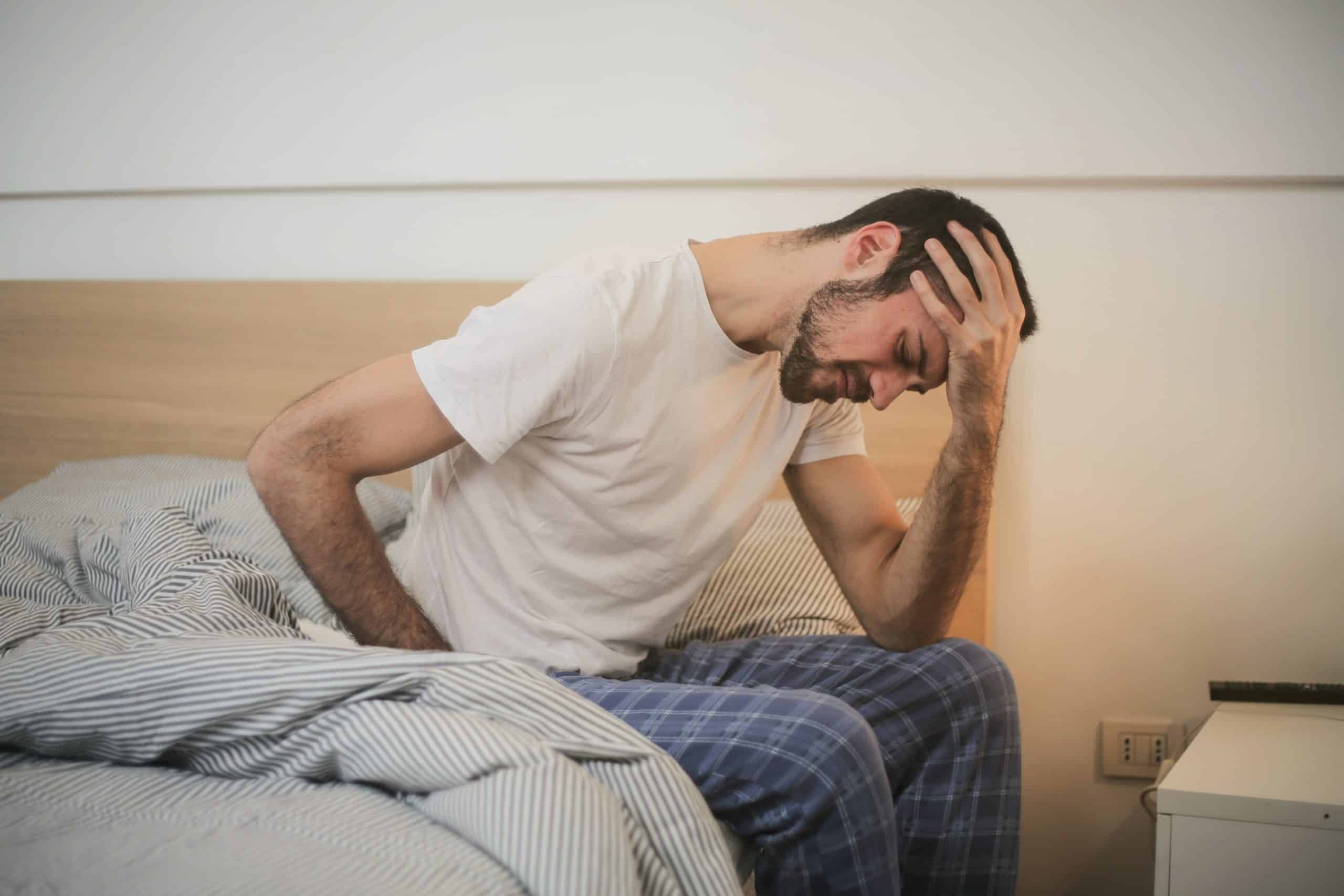Social Anxiety: What You Need To Know

We Treat A Wide Range of Dual Diagnosis Patients who
suffer from Mental Health & Substance Abuse Disorders
Whether you or a loved one are struggling with mental health issues and substance use disorder drug, we are qualified to be able to help you find recovery.
Social anxiety disorder is a mental health condition characterized by intense feelings of nervousness, self-consciousness, and fear of being judged or evaluated by others in social or performance situations. People with social anxiety may avoid social situations or experience significant distress when they cannot avoid them
What Are Some Common Facts &
ABout Social Anxiety Disorder?
- Social anxiety disorder (SAD) is one of the most common mental health disorders, affecting around 7% of the population at some point in their lives.
- It is characterized by excessive fear, self-consciousness, and anxiety in social situations.
- It is different from shyness, which is a normal human trait, and can be treated with therapy and/or medication.
- People with SAD may avoid social situations or experience significant distress when they cannot avoid them.
- Common triggers for social anxiety include public speaking, meeting new people, and being observed while doing something.
- SAD can have a negative impact on an individual’s personal and professional life, leading to isolation, depression, and other problems.

Whats Are Signs
Of Social Anxiety Disorder?
Physical signs of social anxiety disorder (SAD) can include:
- Sweating: People with SAD may experience excessive sweating, especially in social situations.
- Rapid heartbeat: The physical symptoms of SAD can cause an increase in heart rate, which can lead to palpitations or a racing heartbeat.
- Blushing: SAD can cause an increase in blood flow to the face, leading to blushing or flushing.
- Trembling: SAD can cause an increase in muscle tension, which can lead to trembling or shaking.
- Nausea or stomach upset: SAD can cause digestive symptoms such as nausea, stomach cramps, or diarrhea.
- Shortness of breath: SAD can cause the feeling of not being able to catch one’s breath.
- Dizziness: SAD can cause lightheadedness or dizziness.
- Fatigue: SAD can make people feel more tired or exhausted than normal.
- Insomnia: SAD can cause difficulty falling asleep or staying asleep
Emotional and mental signs of social anxiety disorder (SAD) can include:
- Fear of social situations: People with SAD may experience intense fear and anxiety in social situations, such as parties, public speaking, or meeting new people.
- Self-consciousness: People with SAD may be excessively self-conscious and feel overly aware of themselves and their actions in social situations.
- Negative self-talk: People with SAD may have negative thoughts and beliefs about themselves, such as feeling inferior or believing that others will judge them.
- Avoidance of social situations: People with SAD may avoid social situations or activities that trigger their anxiety.
- Perfectionism: People with SAD may have high personal standards and a need for control in order to reduce their anxiety.
- Worry and rumination: People with SAD may worry excessively about social situations before and after they occur, and ruminate on negative experiences.
- Depression: People with SAD may experience symptoms of depression, such as sadness, hopelessness, and a loss of interest in activities they once enjoyed.
- Low self-esteem: People with SAD may have low self-esteem and a negative self-image.
What Are Some Ways to Help or
Cope with Social Anxiety Disorder?
There are several ways to cope with social anxiety disorder (SAD), including:
- Therapy: Cognitive-behavioral therapy (CBT) is a form of therapy that can help individuals with SAD understand and change the thoughts and behaviors that contribute to their anxiety.
- Medication: Antidepressant medication, such as selective serotonin reuptake inhibitors (SSRIs), can be helpful in reducing symptoms of SAD.
- Relaxation techniques: Practice relaxation techniques such as deep breathing, progressive muscle relaxation, and mindfulness to help calm the body and reduce anxiety.
- Exposure therapy: Gradually exposing oneself to the feared social situations and learning how to cope with them can help reduce anxiety over time.
- Self-care: Engaging in regular exercise, getting enough sleep, eating a healthy diet, and avoiding drugs and alcohol can help improve overall well-being and reduce symptoms of SAD.
- Support groups: Joining a support group with people who understand what you’re going through can be helpful in providing emotional support and coping strategies.
- Positive thinking: Try to focus on the positive aspects of social situations and remind yourself of past successes, instead of dwelling on negative thoughts or potential failure.
Common Medications That Treat
Social Anxiety Disorder
Common medications used to treat social anxiety disorder (SAD) include:
- Selective serotonin reuptake inhibitors (SSRIs): SSRIs are a type of antidepressant medication that work by increasing the levels of serotonin, a chemical in the brain that affects mood. Examples of SSRIs used to treat SAD include fluoxetine (Prozac), sertraline (Zoloft), and paroxetine (Paxil).
- Serotonin-norepinephrine reuptake inhibitors (SNRIs): SNRIs are a type of antidepressant medication that work by increasing the levels of both serotonin and norepinephrine, chemicals in the brain that affect mood. Examples of SNRIs used to treat SAD include venlafaxine (Effexor) and duloxetine (Cymbalta).
- Benzodiazepines: Benzodiazepines are a class of medication that act on the central nervous system to produce a calming effect. They are used to reduce the symptoms of anxiety and can be effective in the short-term treatment of SAD. Examples of benzodiazepines used to treat SAD include alprazolam (Xanax) and lorazepam (Ativan).
- Beta-blockers: Beta-blockers are a class of medication that act on the sympathetic nervous system to reduce physical symptoms of anxiety such as a rapid heartbeat, trembling, and sweating. Propranolol is an example of beta-blocker used to treat SAD.
It is important to note that all medications have potential side effects and risks, and it is important to work closely with a healthcare provider to find the right medication and dosage for you. Medications for social anxiety disorder should be taken under the supervision of a healthcare professional, and therapy should also be considered alongside medication.
Is There A difference Between Social Anxiety
Disorder and Generalized Anxiety Disorder?
Yes, there is a difference between social anxiety disorder (SAD) and generalized anxiety disorder (GAD).
Social anxiety disorder, also known as social phobia, is characterized by excessive fear, self-consciousness, and anxiety in social situations. People with SAD may avoid social situations or experience significant distress when they cannot avoid them. Common triggers for social anxiety include public speaking, meeting new people, and being observed while doing something.
Generalized anxiety disorder (GAD) is characterized by excessive and unrealistic worry about everyday events and activities, such as work, school, relationships, and health. People with GAD may experience feelings of restlessness, fatigue, irritability, muscle tension, and sleep disturbance. GAD can be diagnosed if the symptoms have been present for at least 6 months.
Both SAD and GAD are anxiety disorders, and share some common symptoms such as sweating, racing heart, blushing, trembling, and difficulty speaking. However, SAD is specifically related to social interactions and performance, while GAD is a more general excessive worry, regardless of the situation or context. Both disorders can be treated with therapy, medication, or a combination of both.
How We Can
Help At Solace Treatment Center
Solace Treatment Center is an outpatient program that can help people with dual diagnosis , mental health and substance abuse. We understand that each individual will have different needs and are prepared to come up with a customized treatment plan.
At Solace Treatment, we treat a wide range of mental health and substance use disorders. In addition to treating substance use disorder, we are also equipped to treat these mental health disorders:
- Anxiety Disorder
- Depressive Disorder
- Bipolar Disorder
- Schizophrenia
- Trauma-Related Disorder
- Obsessive-Compulsive Disorder
We are offer different treatment solutions available to you including:
- Individual Therapy – One-on-one therapy with one of our licensed clinicians is used to help the person with co-occurring disorders lessen symptoms of both disorders. This kind of talk therapy can be vital in finding recovery.
- Group Therapy – Group therapy is used to help clients find community and develop social skills while being supervised by a therapist. This therapy can help with communication skills and conflict resolution.
- Cognitive Behavioral Therapy (CBT) – CBT is an evidence-based therapy is that has been proven to help in the treatment of substance use disorder and mental disorders. It helps patients recognize their negative thoughts so they can see situations more clearly and respond accordingly.
- Dialectical Behavior Therapy (DBT) – This evidence-based behavior therapy teaches patients new skills to enhance their life. Skills developed during this therapy are distress tolerance, emotion regulation, mindfulness, and interpersonal effectiveness.
- Experiential Therapy – This therapy is used to get patients involved in recreational activities, especially ones that they may have lost interest in during their struggles. Some activities we offer are yoga, hiking, art therapy, and meditation.
If you or someone you know is struggling with addiction and mental health disorders, please contact our team to find the treatment that best fits your needs.


